Potatoes are one of the most versatile and beloved ingredients in German cuisine. While the potato … (More)
German Culture
German Culture: A Journey Through History, Heritage, and Modernity
Germany, at the heart of Europe, boasts a cultural heritage shaped by centuries of transformation, innovation, and influence. From medieval kingdoms to modern reunification, German culture offers a captivating blend of tradition and progress.
Historical Foundations of German Culture
Germany’s identity has been forged by key historical eras: the Holy Roman Empire, the Reformation, Enlightenment, industrialization, two World Wars, and the pivotal reunification after 1989. These milestones have left lasting impressions on German values, art, politics, and global influence.
The German Language and Literary Heritage
The German language is renowned for its depth and precision. Its literary tradition spans centuries, with iconic figures like Goethe, Schiller, and Thomas Mann, as well as modern voices such as Günter Grass and Nobel laureate Herta Müller. The Brothers Grimm not only shaped global storytelling but also contributed to the study of Germanic linguistics.
German Music, Art, and Architecture
Germany’s artistic legacy is immense. Classical composers like Bach, Beethoven, and Wagner revolutionized music. In the visual arts, movements like the German Renaissance, Expressionism, and Bauhaus influenced design and aesthetics worldwide.
Architecturally, Germany displays a rich spectrum—from Gothic cathedrals and Baroque palaces to Bauhaus modernism and Berlin’s futuristic skyline. Neuschwanstein Castle remains a fairy-tale icon of Romantic architecture.
Celebrating German Traditions and Festivals
Germany’s calendar is filled with cultural events rooted in regional customs.
- Oktoberfest:
Held annually in Munich, this world-famous beer festival celebrates Bavarian traditions with music, Lederhosen, Dirndl dresses, and hearty food. - Christmas Markets (Weihnachtsmärkte):
Dating back to the Middle Ages, these markets light up towns with festive stalls, crafts, Glühwein, and Lebkuchen. - Carnival (Karneval/Fasching):
Particularly vibrant in the Rhineland, Carnival features parades, costumes, and satirical performances, celebrating freedom and humor before Lent.
German Cuisine and Regional Flavors
German food is hearty and flavorful, varying by region. Bratwurst, Sauerkraut, and Pretzels are well-known, but each area adds its specialties—like Spätzle in the South, fish dishes in the North, or Hessen’s Apfelwein.
Germany’s beer culture is legendary, grounded in the 1516 Reinheitsgebot (Beer Purity Law). From Pilsner and Weizenbier to Kölsch, each region has its brew. German wines, especially Riesling from the Rhine and Mosel valleys, also enjoy global acclaim.
Why Explore German Culture?
German culture reflects a dynamic mix of deep-rooted tradition and contemporary creativity. Whether you’re passionate about history, art, music, food, or festivals, Germany offers endless inspiration. At GermanCulture.com.ua, we guide you through every layer of this remarkable cultural landscape.
Featured Story
Featured Stories
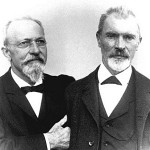
November 3 in German History
November 3 Feast Day of St. Primin (ca. 690 – 753) Primin was a West Goth who was appointed a traveling bishop in 720. He founded several monasteries during his lifetime. Among the monasteries he is said to have founded are Murbach, Neuweiler, Gegenbach, Schwarzach, Hornbach and Amorbach. The city of Pirmasens, Germany is named […]
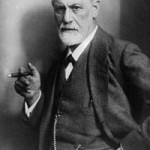
May 6 in German History
May 6, 1757 The battle of Prague takes place in the Seven Year’s War (1756-1763) (Siebenjähriger Krieg) between Prussia and Austria and their allies. May 6, 1856 Birth of Sigmund Freud (1856-1939) in Freiberg, Moravia (then part of the Austrian Empire). Sigmund Freud was an Austrian neurologist who became known as the founding father of […]
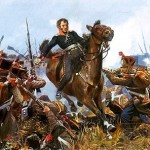
October 16 in German History
October 16, 1708 Birth of the biologist Albrecht von Haller in Bern, Switzerland. He was a professor of medicine, anatomy, and surgery at the University of Göttingen. He was the first to understand the system of respiration. He demonstrated the function of nerves. His 8-volume Elementa Physiologiae Corporis Humani is a classic in medicine. October […]
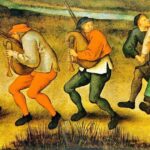
The Dark Side of German History: Strange and Unusual Events
Germany’s history is full of invention, philosophy, and cultural brilliance—but beneath that polished surface lies a strange and eerie past. From bizarre medieval justice systems to mysterious disappearances and unexplained phenomena, Germany has seen its share of bizarre and unsettling events. While most history books focus on wars and political movements, there are stories lurking […]

German Culture Poll
[qsm quiz=1] You might also like:German Bread QuizGerman Christmas Markets QuizOktoberfest QuizDo You Know German Etiquette?German Quizzes & Exercises – Test and Improve Your…The History of German Bread: A Crusty ChronicleRoggenbrot (Rye Bread) RecipeVollkornbrot (Whole Grain Bread)
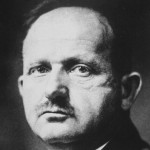
July 27 in German History
July 27, 1881 Birth of Hans Fischer in Frankfurt am Main, Germany. He was an organic chemist. His work from 1921 was almost entirely on the porphyrin group of compounds, which contain four pyrrole rings linked together. His first major success was with haemin, the red non-protein part of hemoglobin. He found the detailed structure […]

June 30 in German History
June 30, 1807 Birth of Friedrich Theodor von Vischer in Ludwigsburg, Germany. A literary critic, he set the theoretical basis for the period of realism in literature. June 30, 1853 Birth of archaeologist Adolf Furtwängler in Freiburg, Germany. His catalogs of ancient Greek art established an historic order. He was Professor of Archaeology at the […]

Why Sauerkraut Is Germany’s Superfood
More Than Just a Pickled Side Dish Crunchy, tangy, and oddly addictive, sauerkraut may look like a humble pile of fermented cabbage—but it’s one of the most powerful foods in the German culinary tradition. For centuries, sauerkraut has been a staple in German kitchens, served alongside sausages, potatoes, and roasts. But what many don’t realize […]
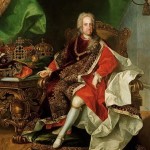
The Age of Enlightened Absolutism, 1648-1789
Although the Holy Roman Empire no longer had a significant role in European politics after the Thirty Years’ War, it remained important in Germany, providing a framework for the many German states’ and cities’ conduct of their public affairs. The Reichstag, which remained in session at Regensburg from 1663 until the empire’s dissolution in 1806, […]
Read More

Quiet Hours in Germany: How Noise Laws Shape Daily Life
Imagine it’s 10:15 p.m. You’ve just returned home from work and want to vacuum quickly or throw in a load of laundry. If you’re in Germany, think again. That low hum of the vacuum cleaner might be met … [Read More...]
All Facts About Germany
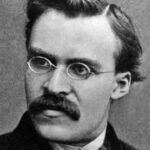
Friedrich Nietzsche – The Rebel Philosopher Who Reshaped Modern Thought
Friedrich Nietzsche didn’t come to play nice. He came to question everything. God. Morality. Society. Even the meaning of truth itself. Armed with aphorisms and a hammer, Nietzsche shattered … [Read More...]

German Minimalism: Why Less is Often More in Daily Life
Germany may not be the birthplace of minimalism, but it has certainly made the concept its own. From uncluttered homes and capsule wardrobes to understated architecture and simple yet functional … [Read More...]

German Dog Breeds: Boxer
The Boxer is a medium-sized, short-haired breed of dog, developed in Germany. The coat is smooth and tight-fitting, colors are fawn or brindled, with or without white markings, and white. Boxers have … [Read More...]

November 9 in German History
November 9, 1522 Birth of Martin Chemnitz in Treuenbrietzen, Germany. A leading Protestant theologian, Chemnitz did much to unify the Protestants in the early Lutheran church. November 9, … [Read More...]

Flammkuchen – Traditional German Flatbread Recipe
Few traditional German recipes manage to be both rustic and elegant quite like Flammkuchen. Originating from the borderlands of Germany and France, this crisp, thin flatbread - often called “German … [Read More...]

Germany’s Quietest Holiday: What’s So Special About Allerheiligen?
As the autumn leaves turn to shades of amber and gold, and a gentle chill settles over the landscape, Germany pauses for one of its most understated yet profoundly moving holidays: Allerheiligen. … [Read More...]

German Learning Tips – Strategies, Tools, and Motivation
Learning German is a marathon, not a sprint - and like any long-distance challenge, the right strategy makes all the difference. Some learners dive into grammar drills, others rely on phrasebooks, … [Read More...]
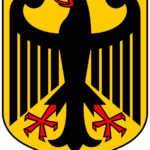
The History and Meaning of German Coat of Arms and National Symbols
Germany’s national symbols and coat of arms carry deep historical significance, reflecting centuries of political, cultural, and social evolution. From the majestic Black Eagle to the striking colors … [Read More...]
